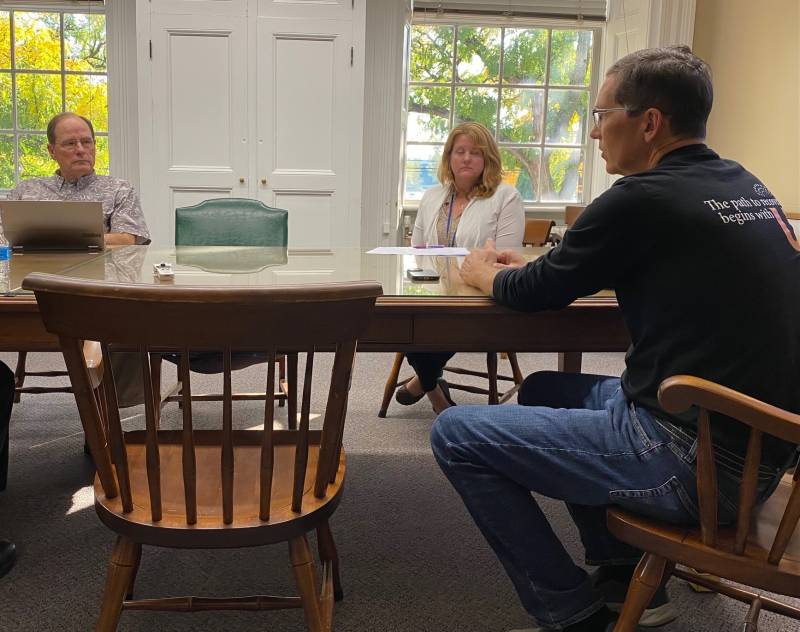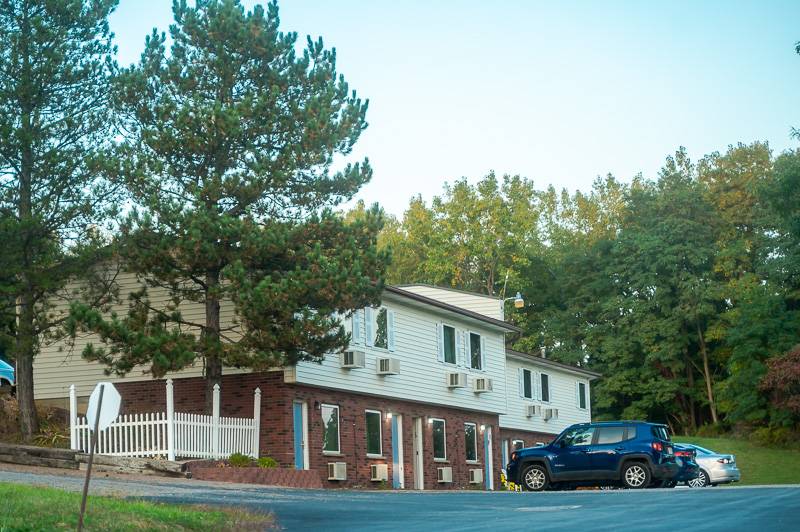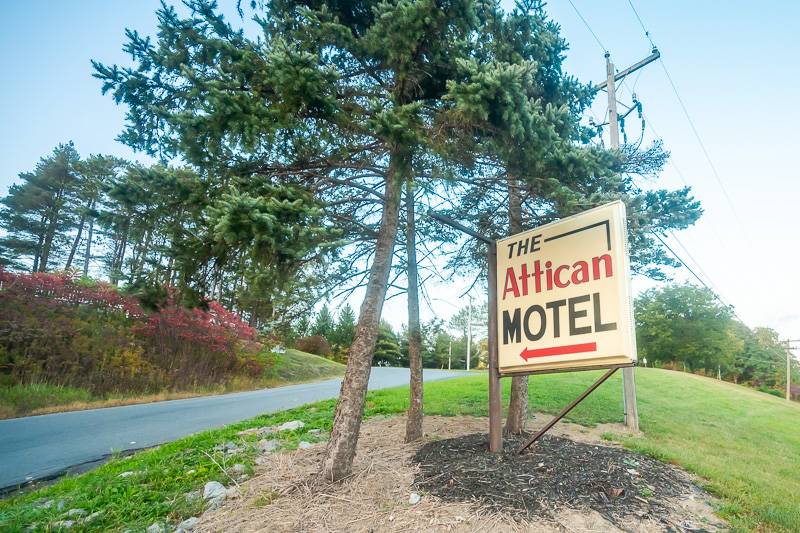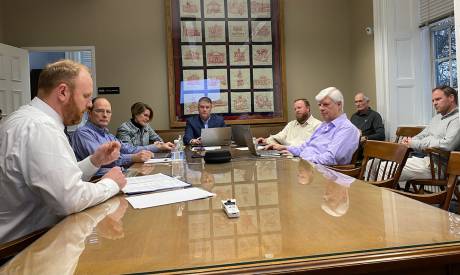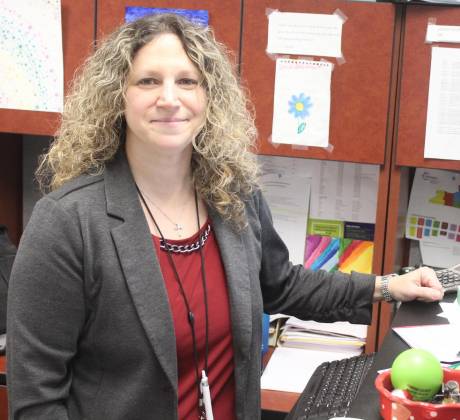Museum director talks numbers and progress, with priority to 'get people to take notice'
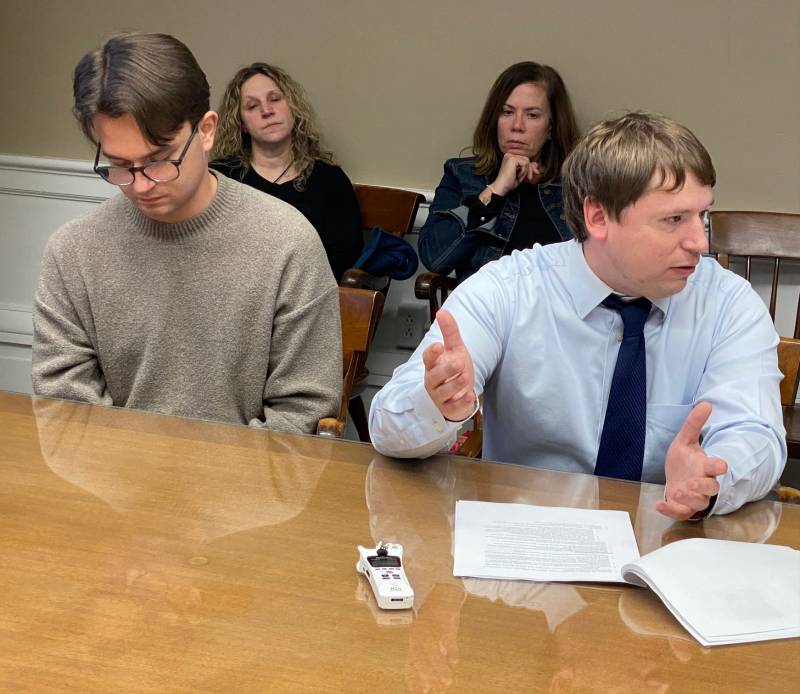
Photo by Joanne Beck
Ryan Duffy was all about the numbers while discussing his annual report with legislators during Genesee County’s Human Services meeting this week.
The Holland Land Office Museum executive director talked about 287, the current membership, and how the museum is just 13 shy of the goal to reach 300 by year’s end; the $43,000 he was able to obtain through grant funds; $5,000 made from Wonderland of Trees; more than 200 videos, 15,000 views and 250 subscribers on the museum’s Artifact Video Series on YouTube; and a collection of nearly 22,000 objects.
“And in March, we were awarded the 2023 special recognition award by the Chamber of Commerce. So celebrating our 130th year as a museum, we got a little recognition for it,” Duffy said. “We were very proud of that, and I'm really just proud of the steps we've been able to take, and building off the growth of 2023, especially since we brought (curator Tyler Angora) on in June, we've just been taking more and more steps, and the goal is to keep building on that as we go forward.”
He broke down those accomplishments a little further: The museum has grown its visitorship “by a few more hundred people compared to where we were last year,” with two of the museum’s busiest months yet to go.
“So we're going to be even further ahead by the end of the year. Our YouTube channel has grown exponentially, over 10,000 views in the past year, which is up a few thousand from the year before,” he said. “Our membership is up another 45 from where we ended last year. And again, we still have two months to go. So our goal of 300 is very much in reach. We're at 287 now. So again, growing in that respect, our outreach has grown significantly, not just the YouTube channel, but we've started recording our other programs, which has brought in even more views, and getting people into the museum by showing them something maybe they wouldn't expect, and they come to the museum to check out what else we have.”
He has written columns for local news outlets, including The Batavian, and has worked with historians and several groups, including the Museum Association of New York, and local school groups, Richmond Memorial Library, Lancaster Historical Society, Attica Senior Citizens, Elba Grange, Alexander Happy Agers, Indian Falls Seniors, Batavia Lions and Rotary clubs and Office for the Aging’s RSVP program, he said.
“We’re getting more notice with that, and our outreach. Just in this past month I’ve done presentations in five counties of Western New York, so our name’s getting out there, and people are interested in what we have to say on a bunch of different topics. So we’re very happy about that,” he said. “On some of our other major achievements, we’ve brought in or been awarded $43,000 in grants this year, which is a significant jump from years in the past. And the money reimbursed to our grant writer, Sarah, has been a major factor in that we’ve gotten money to go towards our addition project, as well as some collections grants, some program grants, so it’s also been going to a lot of different areas to help us improve, and we’ve been continuing our connections with other institutions that we’ve done in the past, those have all increased significantly in terms of number of hours.”
Last year’s Wonderland of Trees exhibit was the biggest ever, he said, drawing more than 500 people and making more than $5,000 from admission.
“So there’s a major fundraiser. We’re starting to decorate now for this year’s, which we are expecting to even be bigger and better than last year, so we’re really looking forward to that,” Duffy said. “Our guest speaker program has really jumped off. We’re now doing sometimes three or four guest speakers or similar programs in a month, not to mention adding some other programming.”
Monthly staff presentations to share a particular passion, robust gift shop sales, business sponsorships and steady progress on the West Wing entrance — in the design phase — are other things happening at the West Main Street museum, he said.
Challenges in the last two years have included continued development of plans for the proposed wing addition to the western side of the museum adjacent to the parking lot, which includes fundraising and potential grant opportunities to cover that high cost; researching and learning new technology of new virtual programming; a reimagining of exhibit spaces, continued organization of collections and related storage areas; expansion of public programming and fundraising events and both growing and diversifying the audience base, he said.
When asked about the biggest challenge of the museum, Duffy first said it’s to continue all of his action steps, adding that the priority is “to get people in the museum and to get people to notice us.”
“And that's probably still our biggest challenge. We're trying to kind of get past people's past impressions of us. Still, I think we've made some significant steps, but people still kind of think of us as what we were sometimes 50 years ago. But I think people are starting to see a lot of change, a lot of new things coming through, and that's really making people more interested in what's going on on a more regular basis,” he said. “Because before it was, ‘Oh, I was there five years ago, I don't need to come anymore.’ And now I tell people, ‘if you haven't been here in six months, you've missed out on a lot.’ So it's just continuing to get that point across, and to get people interested and excited about what we're doing, because we're excited about what we're doing, and we're trying to diversify the programming, the exhibits, even the items in the gift shop, as best we can, to get people to take notice of us and say, ‘I haven't been there in a while. I need to check it out.’”

